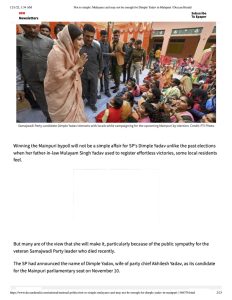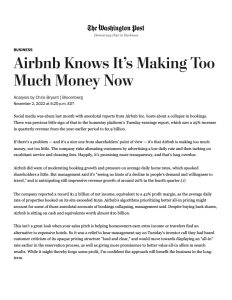


- In the news
- These three articles all connect with the concept of the socioemotional economy and sympathy margins as all three parties relied upon strategically using the socioemotional economy to improve their standing in other people’s minds. John Fetterman in his senatorial campaign chose to take a different approach than most campaigning democrats. He sought out the small towns and areas he knew could be influential and went in and spoke his mind more than most people running for office would care to do. Instead of choosing a moderate approach and appealing to these people by telling them what he thinks they want to hear, he spoke his truth and dedicated a large amount of time to these areas. Because this type of dedication was foreign to these people, especially from democratic candidates, they took notice of Fetterman’s campaign specifically and gave him lots of credit in their socioemotional economies. This credit built up until it was time for voting when Fetterman pulled ahead in areas democrats hadn’t seen won before and closed the gap in other areas that were notoriously difficult for democrats. The people extended him greater sympathy margins and he won the Pennsylvanian senate seat because of this.
-
- Dimple Yadav in her political race also relied upon sympathy margins and credits to boost her standing in people’s socioemotional economies. Her father-in-law was a well known politician that always won his races and, based on the way the people spoke about him, he had a large influence that they appreciated greatly. When he passed, the sympathy credits they gave to him transferred mainly down to Dimple as he supported her race before his passing. This support gave her a real chance at winning the election. Finally, Airbnb being the corporation that it is, pays very close attention to its status in the socioemotional economy and in this instance saw itself slipping in the standings so they decided to act. The company had growing margins of profit while frustration from the public and Airbnb hosts also increased so they decided to take a chance and listen to the people, potentially hurting their profits short-term, but raising their sympathy credits within the public population which long-term benefits the company greatly. They noticeably admitted fault and improved their standing in the socioemotional economy by improving customer satisfaction.
- https://www.thenation.com/article/politics/john-fetterman-working-class-vision/
- https://www.deccanherald.com/national/national-politics/not-so-simple-mulayam-card-may-not-be-enough-for-dimple-yadav-in-mainpuri-1166376.html
- https://www.washingtonpost.com/business/airbnb-knows-its-making-too-much-money-now/2022/11/02/3fa7b410-5aba-11ed-bc40-b5a130f95ee7_story.html